Aniruddha Gokhale
Offline Reinforcement-Learning-Based Power Control for Application-Agnostic Energy Efficiency
Jan 16, 2026Abstract:Energy efficiency has become an integral aspect of modern computing infrastructure design, impacting the performance, cost, scalability, and durability of production systems. The incorporation of power actuation and sensing capabilities in CPU designs is indicative of this, enabling the deployment of system software that can actively monitor and adjust energy consumption and performance at runtime. While reinforcement learning (RL) would seem ideal for the design of such energy efficiency control systems, online training presents challenges ranging from the lack of proper models for setting up an adequate simulated environment, to perturbation (noise) and reliability issues, if training is deployed on a live system. In this paper we discuss the use of offline reinforcement learning as an alternative approach for the design of an autonomous CPU power controller, with the goal of improving the energy efficiency of parallel applications at runtime without unduly impacting their performance. Offline RL sidesteps the issues incurred by online RL training by leveraging a dataset of state transitions collected from arbitrary policies prior to training. Our methodology applies offline RL to a gray-box approach to energy efficiency, combining online application-agnostic performance data (e.g., heartbeats) and hardware performance counters to ensure that the scientific objectives are met with limited performance degradation. Evaluating our method on a variety of compute-bound and memory-bound benchmarks and controlling power on a live system through Intel's Running Average Power Limit, we demonstrate that such an offline-trained agent can substantially reduce energy consumption at a tolerable performance degradation cost.
A Reinforcement Learning Approach for Performance-aware Reduction in Power Consumption of Data Center Compute Nodes
Aug 15, 2023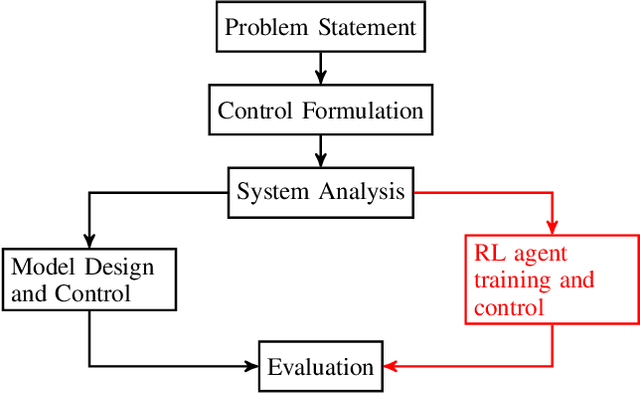
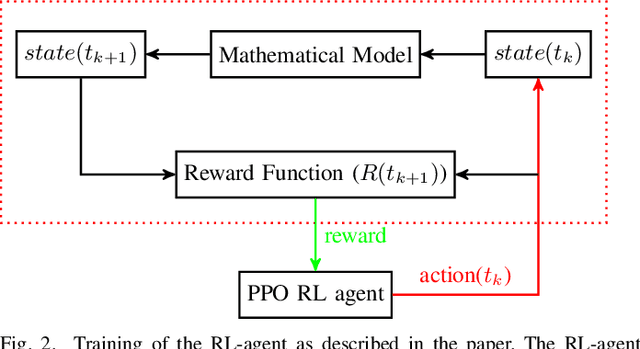
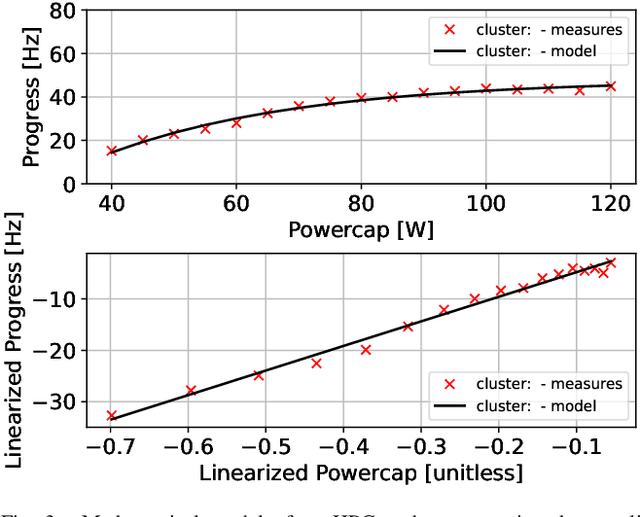
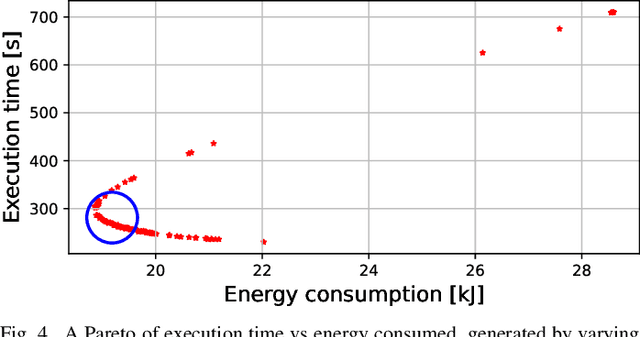
Abstract:As Exascale computing becomes a reality, the energy needs of compute nodes in cloud data centers will continue to grow. A common approach to reducing this energy demand is to limit the power consumption of hardware components when workloads are experiencing bottlenecks elsewhere in the system. However, designing a resource controller capable of detecting and limiting power consumption on-the-fly is a complex issue and can also adversely impact application performance. In this paper, we explore the use of Reinforcement Learning (RL) to design a power capping policy on cloud compute nodes using observations on current power consumption and instantaneous application performance (heartbeats). By leveraging the Argo Node Resource Management (NRM) software stack in conjunction with the Intel Running Average Power Limit (RAPL) hardware control mechanism, we design an agent to control the maximum supplied power to processors without compromising on application performance. Employing a Proximal Policy Optimization (PPO) agent to learn an optimal policy on a mathematical model of the compute nodes, we demonstrate and evaluate using the STREAM benchmark how a trained agent running on actual hardware can take actions by balancing power consumption and application performance.
Generative Anomaly Detection for Time Series Datasets
Jun 28, 2022
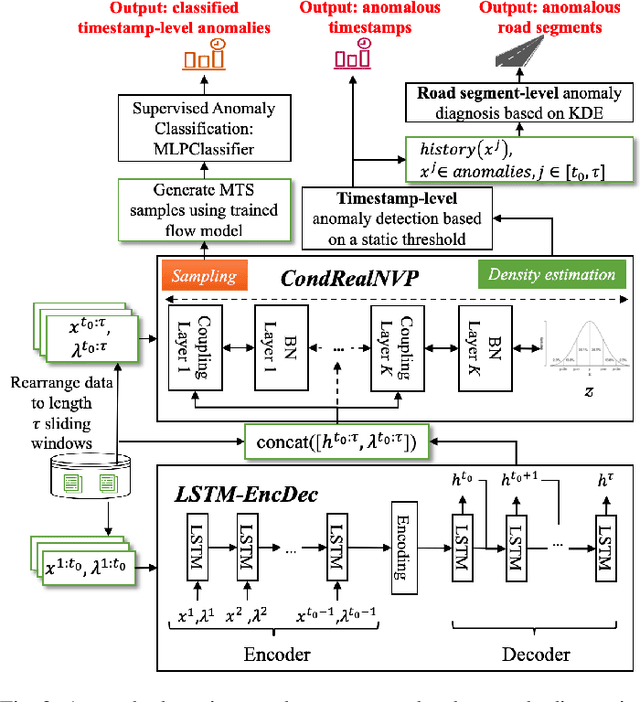

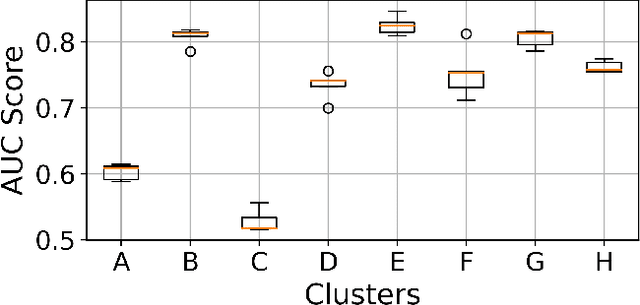
Abstract:Traffic congestion anomaly detection is of paramount importance in intelligent traffic systems. The goals of transportation agencies are two-fold: to monitor the general traffic conditions in the area of interest and to locate road segments under abnormal congestion states. Modeling congestion patterns can achieve these goals for citywide roadways, which amounts to learning the distribution of multivariate time series (MTS). However, existing works are either not scalable or unable to capture the spatial-temporal information in MTS simultaneously. To this end, we propose a principled and comprehensive framework consisting of a data-driven generative approach that can perform tractable density estimation for detecting traffic anomalies. Our approach first clusters segments in the feature space and then uses conditional normalizing flow to identify anomalous temporal snapshots at the cluster level in an unsupervised setting. Then, we identify anomalies at the segment level by using a kernel density estimator on the anomalous cluster. Extensive experiments on synthetic datasets show that our approach significantly outperforms several state-of-the-art congestion anomaly detection and diagnosis methods in terms of Recall and F1-Score. We also use the generative model to sample labeled data, which can train classifiers in a supervised setting, alleviating the lack of labeled data for anomaly detection in sparse settings.
BARISTA: Efficient and Scalable Serverless Serving System for Deep Learning Prediction Services
Apr 11, 2019
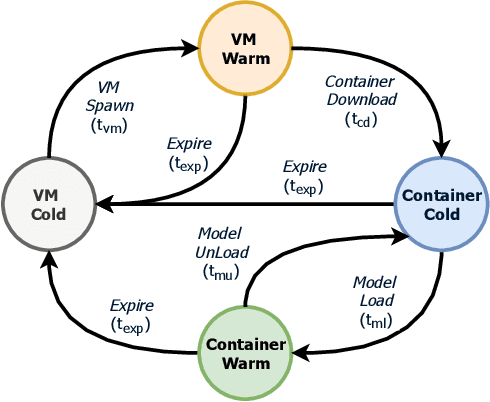
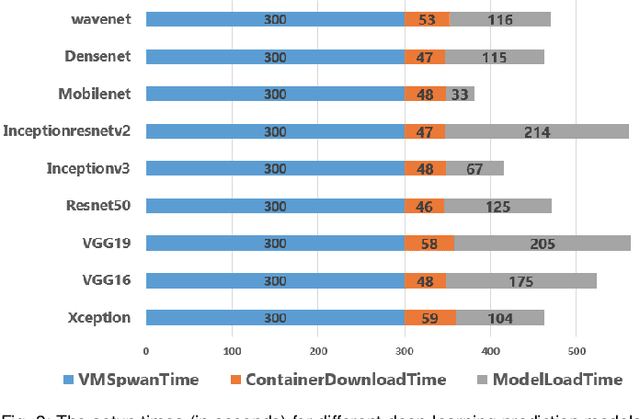
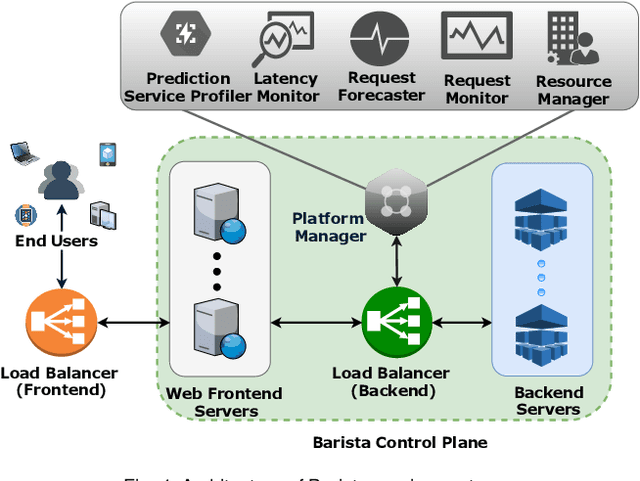
Abstract:Pre-trained deep learning models are increasingly being used to offer a variety of compute-intensive predictive analytics services such as fitness tracking, speech and image recognition. The stateless and highly parallelizable nature of deep learning models makes them well-suited for serverless computing paradigm. However, making effective resource management decisions for these services is a hard problem due to the dynamic workloads and diverse set of available resource configurations that have their deployment and management costs. To address these challenges, we present a distributed and scalable deep-learning prediction serving system called Barista and make the following contributions. First, we present a fast and effective methodology for forecasting workloads by identifying various trends. Second, we formulate an optimization problem to minimize the total cost incurred while ensuring bounded prediction latency with reasonable accuracy. Third, we propose an efficient heuristic to identify suitable compute resource configurations. Fourth, we propose an intelligent agent to allocate and manage the compute resources by horizontal and vertical scaling to maintain the required prediction latency. Finally, using representative real-world workloads for urban transportation service, we demonstrate and validate the capabilities of Barista.
Stratum: A Serverless Framework for Lifecycle Management of Machine Learning based Data Analytics Tasks
Apr 03, 2019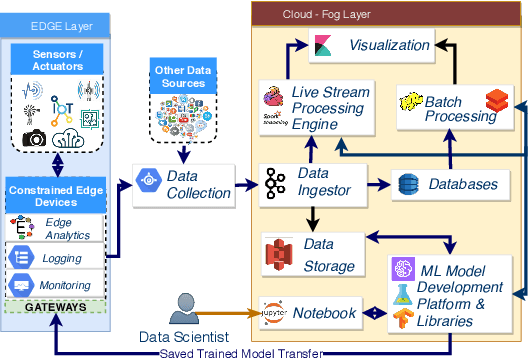
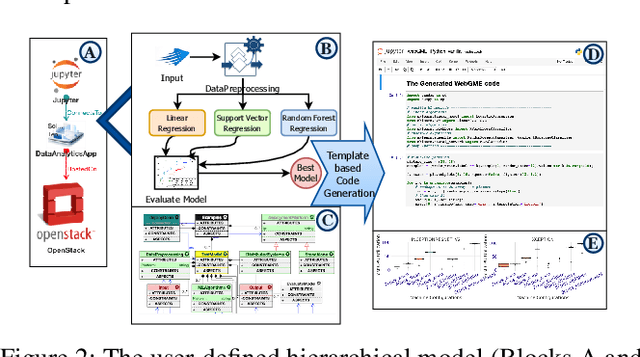
Abstract:With the proliferation of machine learning (ML) libraries and frameworks, and the programming languages that they use, along with operations of data loading, transformation, preparation and mining, ML model development is becoming a daunting task. Furthermore, with a plethora of cloud-based ML model development platforms, heterogeneity in hardware, increased focus on exploiting edge computing resources for low-latency prediction serving and often a lack of a complete understanding of resources required to execute ML workflows efficiently, ML model deployment demands expertise for managing the lifecycle of ML workflows efficiently and with minimal cost. To address these challenges, we propose an end-to-end data analytics, a serverless platform called Stratum. Stratum can deploy, schedule and dynamically manage data ingestion tools, live streaming apps, batch analytics tools, ML-as-a-service (for inference jobs), and visualization tools across the cloud-fog-edge spectrum. This paper describes the Stratum architecture highlighting the problems it resolves.
 Add to Chrome
Add to Chrome Add to Firefox
Add to Firefox Add to Edge
Add to Edge